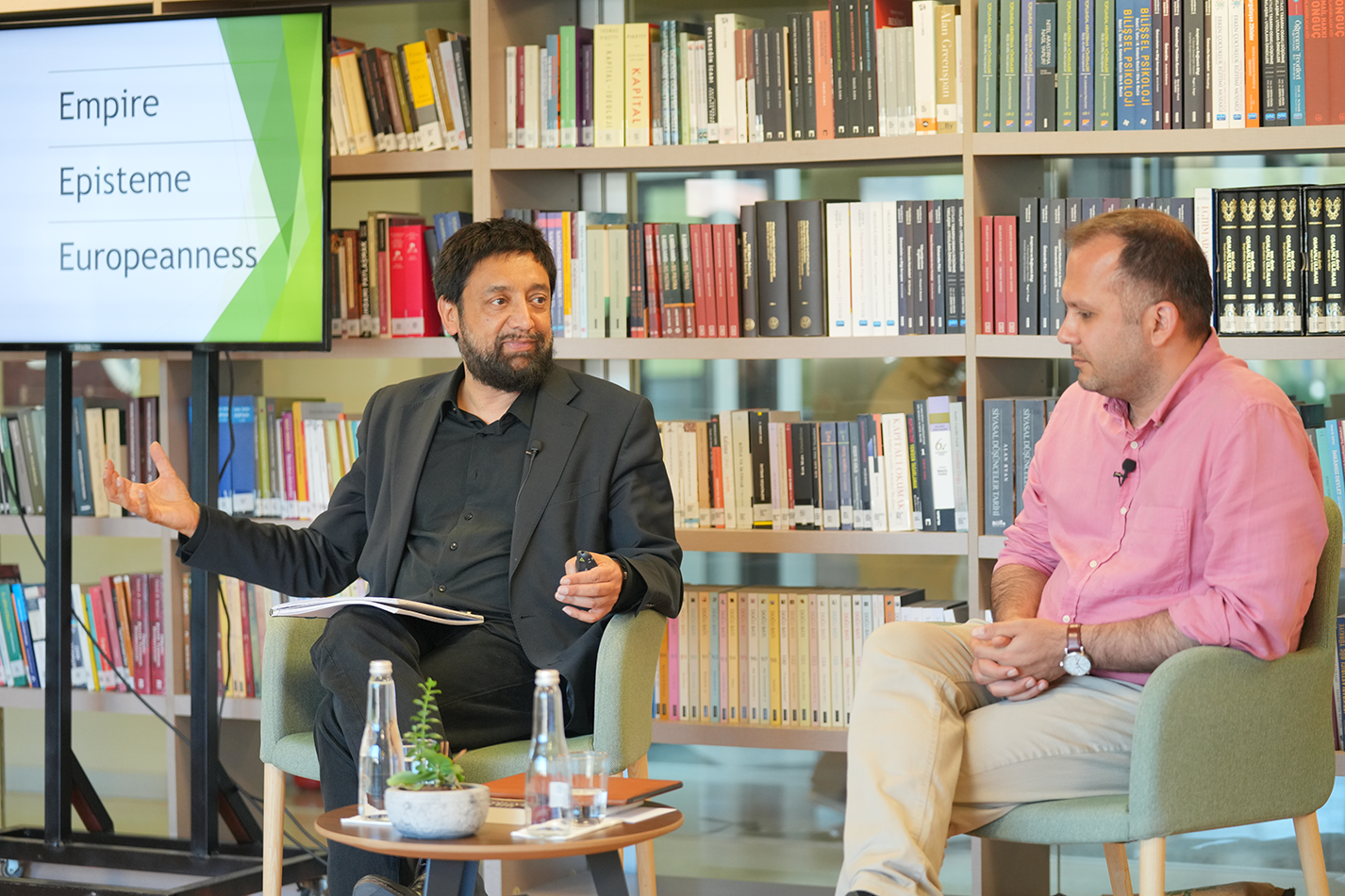
Post-Gaza Decolonization’: Questioning the Colonial Codes of Knowledge with Salman Sayyid
The latest guest in Institute Social’s Global Reflections series was political theorist Salman Sayyid (University of Leeds), whose interdisciplinary work spans Islamophobia and racism, decolonial thought, post-structural political theory, and relational sociology.

In a lecture titled “Post-Gaza Decolonization,” Sayyid traced the far-reaching influence of colonial knowledge formations on the social sciences, arguing that the events in Gaza mark not only a political crisis but also an epistemological rupture.
The Colonial Face of Modern Disciplines
Sayyid opened by recalling how sociology and anthropology emerged as institutional carriers of a Eurocentric worldview. Sociology sought to universalize European modernity, whereas anthropology entrenched positivism and methodological nationalism by defining the primitive other. “If you look at anthropology and sociology,” he observed, “you quickly see that two separate fields are unnecessary. The split exists to keep empire and Europe apart: anthropology studies the ‘non-modern/primitive’ communities outside Europe, while sociology analyzes the modern society within it. The histories we inherit are therefore anything but neutral; they are deeply entangled with Europe’s colonial-racist projects.”
For Sayyid, decolonization extends beyond the end of formal domination; it demands a sustained interrogation of the intellectual schemas we have internalized. Dominant categories—individual, nation, modern time—often constrain rather than illuminate our understanding of the world.
Gaza and the Possibility of Epistemic Resistance
Gaza, Sayyid argued, assumes central significance not only because it exposes colonial-racist operations in stark relief, but also because it compels us to scrutinize how knowledge itself is produced and legitimized. He highlighted the dissonance between Western universities’ rhetorical embrace of decolonization and their silence on Palestine: “This three-stage cycle—the initial mass demand for decolonization, the university’s inclusive ‘global vision,’ and finally its stance on Gaza—tells us something crucial: decolonization is essential, yet it cannot be entrusted to colonizers. The task falls to those who have lived through direct or indirect forms of colonial subjugation.”
Rethinking the Social Sciences after Gaza
Sayyid’s call is unambiguous: If the social sciences are to be truly emancipatory, they must revisit their own conditions of emergence, epistemic assumptions, and moral orientations. Gaza is not merely an event but a threshold—a mirror that reflects the limits of prevailing paradigms. Decolonizing the social sciences in the post-Gaza era therefore entails more than producing new knowledge; it requires exposing the injustices embedded in existing knowledge regimes and constructing alternative pathways of thought. Sayyid thus framed Gaza as a catalyst for epistemic resistance—a summons to rebuild social-scientific inquiry beyond the colonial codes that continue to shape it.
For more information, you can watch our video.
https://youtu.be/W9WlRJGDVfY?si=SZu99QMTmKvtOUzB
